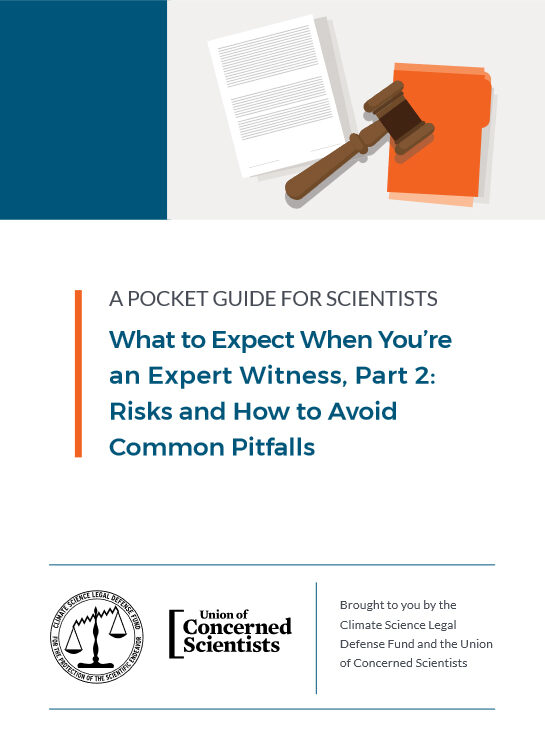A Pocket Guide for Scientists: What to Expect When You’re an Expert Witness, Part 2
 The courtroom is an increasingly important arena for determining who should pay for climate-related damages and the government’s role to protect us from climate change. Physical and social scientists play a crucial role in this burgeoning field of climate litigation by helping judges and juries understand the most current and robust climate science.
The courtroom is an increasingly important arena for determining who should pay for climate-related damages and the government’s role to protect us from climate change. Physical and social scientists play a crucial role in this burgeoning field of climate litigation by helping judges and juries understand the most current and robust climate science.
Produced in collaboration with the Union of Concerned Scientists (UCS), this guide helps scientists better understand the potential legal risks of serving as an expert witness and how to mitigate them, and the right questions to ask to proceed with confidence and have a positive and fulfilling experience. This guide builds upon our first, introductory expert witness guide, “What to Expect When You’re an Expert Witness.”
The information contained in this guide concerns U.S. laws only and does not constitute specific legal advice. If you have legal questions regarding a particular circumstance, please call your lawyer, or contact us directly for a free legal consultation by emailing laywer@csldf.org or using our web form.
Check out our complete list of reports and publications for more resources designed to educate the scientific community about the legal system, their rights, and their responsibilities.
Scientists who are considering getting involved as an expert in climate litigation should also connect with the UCS Science Hub for Climate Litigation, as well as the multiple resources developed by Columbia Law School’s Sabin Center for Climate Change Law available here, which includes the Climate Attribution Database.